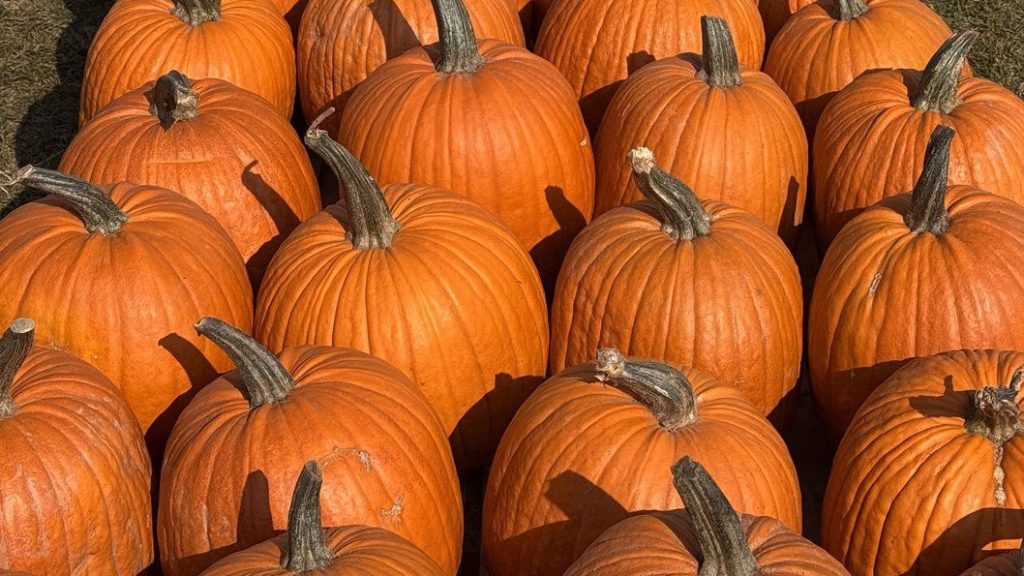The pumpkin patches on Canadian farms are facing significant challenges this season, with many producers reporting low yields due to drought and extreme heat. Greg MacKenzie, owner of Mackenzie Produce in Stratford, P.E.I., stated that his farm has seen a reduced yield, with many pumpkin vines dying and the fruit not reaching its typical weight. He expressed concerns that most pumpkins may be too small for harvest this year, potentially affecting export levels to the United States.
MacKenzie noted that he typically relies on September rains for salvation, but without timely rainfall, it will be difficult to make up for the crop loss. He is not alone in his struggles; farmers across Canada are sharing similar experiences, attributing their challenges to drought and heat that have impacted the size and supply of pumpkins typically used for making jack-o-lanterns or for food preservation.
The Canadian Drought Monitor reported that as of August, approximately 71% of the country was classified as either abnormally dry or experiencing moderate to extreme aridity, with 70% of Canadian farmland affected. Unusual weather patterns are raising concerns about future agricultural viability, as global warming increases the risk and severity of droughts in regions already struggling with water shortages.
Recent data from Statistics Canada indicates that droughts have led to a drastic increase in crop insurance payouts, surging from $890 million in 2018 to a staggering $4.9 billion projected for 2024. In central Alberta, the situation has been severe, turning much of the area into a barren landscape. Mike Williams from Ponoka, Alberta, reported that he has been hauling water to his farm since May to prepare the soil for planting pumpkins and squash.
While Williams described this year’s crop as somewhat promising, with pumpkins weighing between 30 and 40 pounds, other farmers are not as optimistic. Roy Phillips, owner of Phillips Family Farm in northwest London, noted that the weather has been unpredictable, with rain followed by weeks of dryness. He acknowledged that while his pumpkins have maintained good quality, the overall yield has been impacted due to fluctuating weather patterns.
Donna Warner, who has operated Warner Ranch and Pumpkin Farm in Niagara Falls, Ontario, for 30 years, expressed her frustration with this season, calling it the worst she has ever encountered. She explained that the heat stressed her plants, resulting in a shortage of female flowers, which ultimately led to a significant 70% decrease in yield. Warner lamented that her farm does not have any jumbo pumpkins this year, and she emotionally conveyed the strain of the situation, referring to the significant amount of labor and money invested that has not yielded adequate returns.
Meanwhile, Danny Dill of Howard Dill Enterprises in Windsor, Nova Scotia, described this season as having been excessively hot since June, resulting in inadequate irrigation options. The heat has not only affected pumpkins but other crops such as squash, which are now in high demand from consumers looking to freeze and store for winter.
Dill remarked on the drastic weather fluctuations over the past decade, indicating that normal growing seasons may only occur every few years. The unpredictability is troubling, and he concluded with a light-hearted observation, stating that this year's jack-o-lanterns have taken on a "sketchy" appearance instead of a spooky one, likening them humorously to "Casper the Friendly Ghost." He also made a playful reference to the popular song from the 'Ghostbusters' movie, suggesting that something strange is indeed happening in the pumpkin fields.












